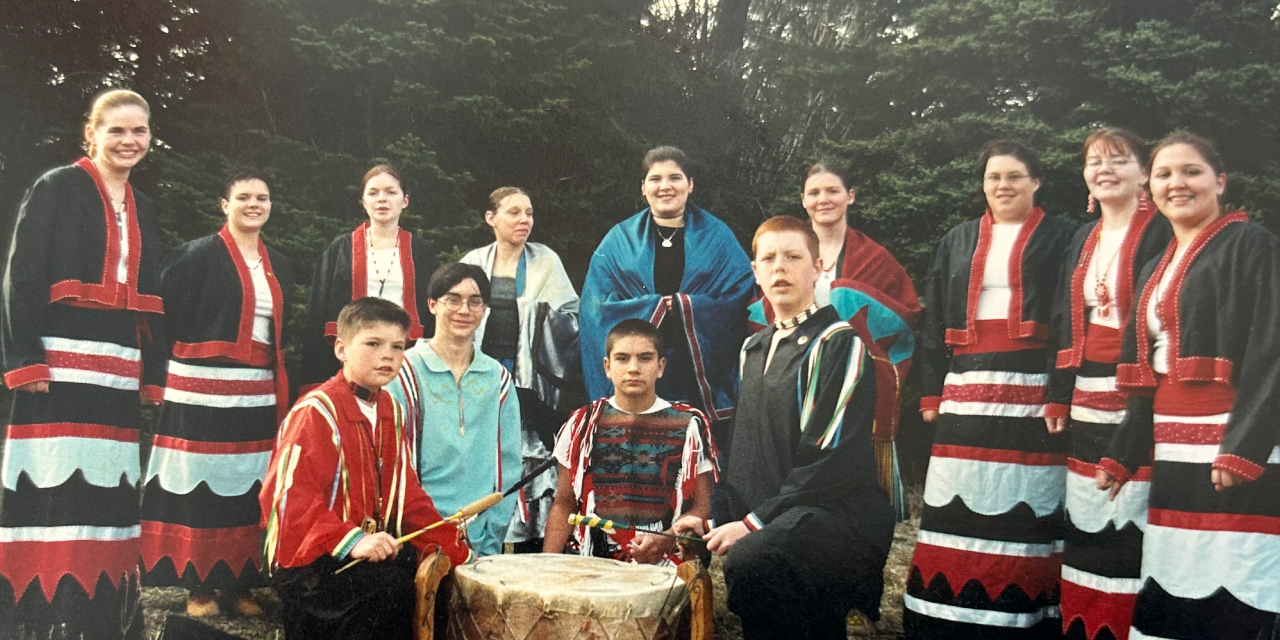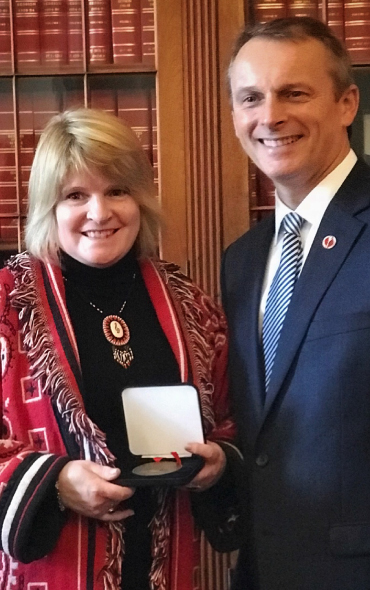Singing the unsung
In the late summer of 1980, Brenda Jeddore hopped into her compact sedan, left St. John’s and headed west. She drove for hours along the Trans Canada and then down the Bay d’Espoir Highway.
She had recently graduated with her bachelor degrees in arts and education from Memorial University. And although there were teaching opportunities for her in St. John’s, where she was born and raised, she felt she wanted more of an adventure.
But as she turned onto the rough unpaved road leading to Conne River, on Newfoundland’s south coast, she wondered if she had asked for too much adventure.
St. Anne’s School in Conne River had few resources for the arts at that time. There were no instruments in the school. Not even a single drum. With few other options, Ms. Jeddore focused instead on teaching her students to sing.
She also gathered them to form a church choir, and that’s when she had a moment of inspiration.
With the help of a community Elder, Ms. Jeddore translated a hymn into the Mi’kmaw language to be performed in church.
Though it would take years before this kind of work could be done within the school curriculum, that first translation planted the seed of something remarkable.
When the community achieved federal status to become Miawpukek First Nation in 1987, Ms. Jeddore had been teaching in a different community for five years.
That’s when she received a call from Edwina Wetzel, the visionary educator who would later be named to the Order of Canada and receive an honorary doctorate from Memorial for her work in bringing Mi’kmaw history, language and culture into the educational curriculum.
Dr. Wetzel asked Ms. Jeddore to come back to St. Anne’s School, now known as Se’t A’newey Kina’matino’Kuom.
Since Miawpukek First Nation had assumed control of its pedagogical system, Dr. Wetzel explained, Ms. Jeddore could now continue her efforts to help revitalize the Mi’kmaw language through the school’s music program.
Ms. Jeddore returned and approached her work with uncommon passion.
Since she is not Indigenous and was still learning the language herself, she took time each summer to travel to Eskasoni First Nation in Nova Scotia to participate in their immersion program.
She studied the language and music with Edler Wilfred Prosper, a respected preserver and teacher of Mi’kmaw hymns and traditions.
Later she would learn folk songs with Elder Bernie Francis, the renowned musician, storyteller, linguist and co-developer of the Francis-Smith Orthography.
Ms. Jeddore recorded the Mi’kmaw songs and took them home with her. Then when her house was quiet, she would spend summer days lying on the living-room floor with her tape recorder, carefully transcribing the words to teach her students.
She knew that even the slightest mispronunciation of a syllable could drastically alter the meaning of a word, but as a self-admitted perfectionist, the work suited her.

The Se’t A’newey Drum and Traditional Choir in the garden of Saqamaw Mi'sel Joe in 2000. Photo courtesy of Brenda Jeddore.
Thanks to her high standards and willingness to work with experts from other communities, her students became accomplished singers, chanters, dancers and drummers.
Her choirs went on to win national and international acclaim. They travelled around the province and across the country, and they received praise from the most exacting linguistic and musical experts.
They even visited Japan to take part in the Threnody Peace Education Project at Elizabeth University in Hiroshima in 2005.
This performance, says Ms. Jeddore, was one of the highlights of her career. When she saw the audience’s response to her students, she recognized the healing power of music.
Over the years, Ms. Jeddore witnessed great changes at Miawpukek First Nation.
That road she first followed back in 1980 is paved and maintained now, and the community is growing and thriving. It is often cited as a model community for other First Nations.
And though she’s retired from teaching, she remembers the way her students changed as well. She remembers how her youngest students started to dream of becoming singers and dancers and drummers. And those dreams signified the existence of a future she helped to provide – a future of expressing and celebrating Mi’kmaw language and culture.
In 2018, the Canadian Senate marked its anniversary by creating the Senate 150th Anniversary Medal. The medals would be awarded to Canada’s “unsung heroes.”
Ms. Jeddore received her medal for teaching others to sing.
